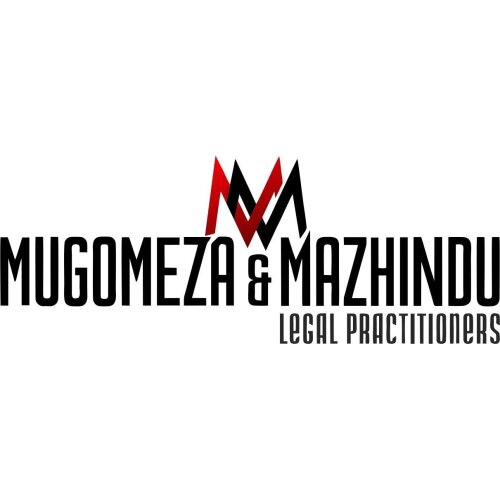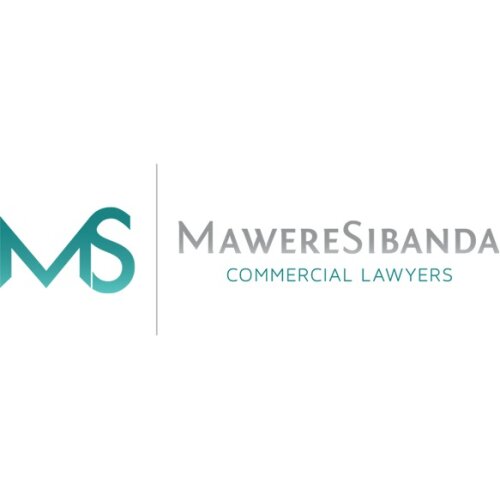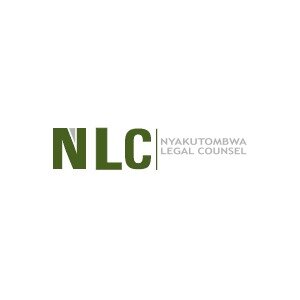Best Project Finance Lawyers in Harare
Share your needs with us, get contacted by law firms.
Free. Takes 2 min.
List of the best lawyers in Harare, Zimbabwe
About Project Finance Law in Harare, Zimbabwe
Project finance is a specialized area of law and finance that involves funding long-term infrastructure or industrial projects using a non-recourse or limited recourse financial structure. In Harare, Zimbabwe, project finance is essential for the development of large scale projects such as energy plants, mining operations, roads, telecommunications and water supply systems. Instead of relying on the balance sheets of the project sponsors, lenders provide financing based primarily on the expected cash flows generated by the project itself. Legal frameworks and arrangements are meticulously structured to allocate risk and protect the interests of all parties involved.
Why You May Need a Lawyer
Engaging an experienced lawyer in Harare for project finance is crucial given the complexity and long-term nature of such projects. Common situations where legal advice is necessary include:
- Negotiating and drafting complex project agreements and financing documents
- Ensuring regulatory compliance with Zimbabwean laws and sector-specific regulations
- Managing risks related to public-private partnerships or foreign investment
- Navigating disputes among lenders, sponsors, or government authorities
- Structuring the transfer or sharing of project risks
- Securing licenses, permits, or land rights necessary for project implementation
- Advising on taxation, foreign exchange, and currency risk matters
- Facilitating smooth project closure and monitoring ongoing legal obligations
Local Laws Overview
Project finance in Harare operates under Zimbabwean law, which sets out specific requirements for the establishment, funding, construction, and operation of major projects. Key aspects include:
- Investment Regulations: Investments, especially foreign, are governed by the Zimbabwe Investment and Development Agency Act which outlines procedures for investment approvals and foreign investor protections.
- Lending and Security: Security arrangements are impacted by the Movable Property Security Interests Act, the Deeds Registries Act, and other laws relating to collateralization and debt enforcement.
- Sectors Regulation: Energy, mining, infrastructure, and telecommunication sectors are subject to sector-specific laws and regulatory bodies, such as the Zimbabwe Energy Regulatory Authority and the Ministry of Mines.
- Public-Private Partnerships: The Public Procurement and Disposal of Public Assets Act guides the process for PPPs, including tendering and contractual arrangements with public entities.
- Land and Environmental Laws: Land acquisition, environmental assessments, and permitting are mandatory for most large-scale projects, regulated by statutes like the Environmental Management Act.
- Exchange Controls: The Reserve Bank of Zimbabwe regulates currency controls which have implications for foreign investors wishing to repatriate revenues or profits.
- Dispute Resolution: Disputes may be resolved through local courts, arbitration, or alternative dispute resolution mechanisms as stipulated in the contract.
Frequently Asked Questions
What is project finance?
Project finance is a method of financing where the repayment of loans is mainly dependent on the cash flow generated by the project rather than the general assets or creditworthiness of the project sponsors.
What types of projects commonly use project finance in Harare?
Large scale infrastructure projects such as power generation plants, water treatment facilities, roads, airports, mining operations, and telecommunications infrastructure frequently use project finance in Harare.
Can foreign investors participate in project finance in Zimbabwe?
Yes, foreign investors can participate subject to compliance with Zimbabwean investment laws and sector-specific requirements, and may need to obtain necessary approvals from relevant authorities.
Do I need government approval for my project?
Most large projects require approval from government departments or regulatory agencies, especially those that impact public interest, use public resources, or require public-private partnerships.
What legal documents are essential in project finance transactions?
Typical documents include loan agreements, security agreements, shareholder or joint venture agreements, EPC (Engineering, Procurement and Construction) contracts, concession agreements, and off-take agreements.
How is risk allocated in project finance deals?
Risks are contractually allocated among lenders, sponsors, contractors, suppliers and the government to ensure that each risk is borne by the party best positioned to manage it.
What forms of security can lenders require?
Lenders may request security in the form of project assets, receivables, shares in the project company, government guarantees, or third party guarantees depending on the sector and size of the project.
How are environmental and social impacts managed?
Environmental and social impacts must be assessed and addressed through mandatory Environmental Impact Assessments and compliance with local and international standards, overseen by regulatory authorities.
Is arbitration available for project finance disputes in Harare?
Yes, many project finance contracts include arbitration clauses to resolve disputes, and Zimbabwean law supports arbitration both locally and internationally.
Can profits or loan repayments be repatriated outside Zimbabwe?
Yes, but this is subject to exchange control regulations and approvals from the Reserve Bank of Zimbabwe, especially for foreign investors and lenders.
Additional Resources
For further information and guidance on project finance in Harare, Zimbabwe, consider contacting or researching the following organizations:
- Zimbabwe Investment and Development Agency (ZIDA)
- Zimbabwe Energy Regulatory Authority (ZERA)
- Ministry of Finance and Economic Development
- Zimbabwe Environmental Management Agency (EMA)
- Reserve Bank of Zimbabwe (RBZ)
- Zimbabwe Revenue Authority (ZIMRA)
- Law Society of Zimbabwe for referrals to qualified legal practitioners
Next Steps
If you are considering or are currently involved in a project that requires structured project finance in Harare, these are the next steps you should consider:
- Evaluate your project and financing needs to clarify your objectives and potential legal issues.
- Consult with a lawyer specializing in project finance law in Zimbabwe to get tailored advice based on your situation and the sector in which your project falls.
- Gather all relevant documentation, such as business plans, feasibility studies, and records of correspondence with government agencies.
- Engage with necessary government authorities early to understand regulatory approvals and compliance requirements.
- Ensure your project is structured with strong legal agreements that distribute risks clearly and comply with Zimbabwean laws.
- Monitor compliance and stay updated on changes to local regulations affecting your project.
Seeking legal advice early in the process can help you avoid costly mistakes and ensure your project proceeds smoothly, benefiting from the full protections and opportunities provided by the law.
Lawzana helps you find the best lawyers and law firms in Harare through a curated and pre-screened list of qualified legal professionals. Our platform offers rankings and detailed profiles of attorneys and law firms, allowing you to compare based on practice areas, including Project Finance, experience, and client feedback.
Each profile includes a description of the firm's areas of practice, client reviews, team members and partners, year of establishment, spoken languages, office locations, contact information, social media presence, and any published articles or resources. Most firms on our platform speak English and are experienced in both local and international legal matters.
Get a quote from top-rated law firms in Harare, Zimbabwe — quickly, securely, and without unnecessary hassle.
Disclaimer:
The information provided on this page is for general informational purposes only and does not constitute legal advice. While we strive to ensure the accuracy and relevance of the content, legal information may change over time, and interpretations of the law can vary. You should always consult with a qualified legal professional for advice specific to your situation.
We disclaim all liability for actions taken or not taken based on the content of this page. If you believe any information is incorrect or outdated, please contact us, and we will review and update it where appropriate.

















